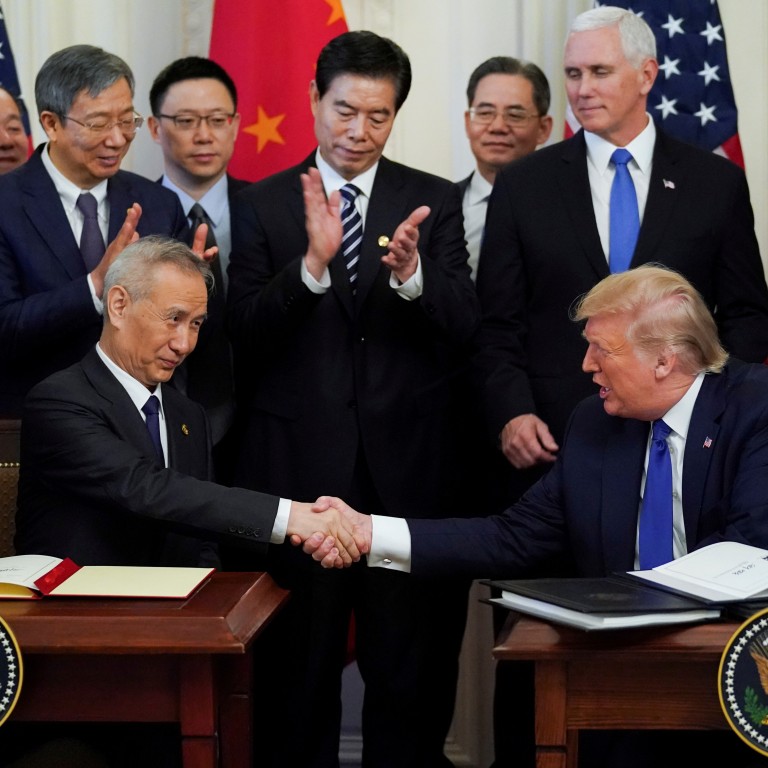
China’s US trade war deal is ‘is good for the world’ and‘will not impact’ imports from other countries
- Vice-Premier Han Zheng told the World Economic Forum that commitments to buy more from the US are in line with World Trade Organisation (WTO) rules
- The phase one deal signed last week with US President Donald Trump will see China buy an additional US$200 billion of goods and services over the next two years
Vice-Premier Han Zheng told the World Economic Forum that China’s trade deal with the United States will not hurt rival exporting nations as complaints mount from governments that were left out of the agreement.
He also pledged to lower barriers for foreign investors as he set out the case for China’s engagement with the global economy.
The phase one trade deal is good for the US, China and the world. China’s increasing purchases of US goods are in accordance with WTO guidelines and will not impact its imports from other countries
The accord saw China commit to crack down on the theft of American technology and corporate secrets by its companies and state entities, while outlining a US$200 billion spending spree to try to close its trade imbalance with the US
Han made the comments just as Trump gave his own speech in Davos, in which the US president claimed credit for overseeing an economy enjoying its longest expansion yet, with an unemployment rate that fell to a five-decade low after tax cuts, deregulation and improved trade deals.
“He’s for China and I’m for the US, but other than that, we love each other,” he said.
Under the agreement, China will boost its purchases of US manufactured goods, agricultural products, energy and services over the next two years, although critics say such predetermined demand can have adverse consequences elsewhere.
“The real problem with managed trade is that it may divert, rather than expand, international commerce,” Chad Bown, a senior fellow and trade expert at the Peterson Institute for International Economics in Washington, said in a report released on Tuesday. “For example, China could purchase more American soybeans by cutting back on imports of oilseeds from Brazil.”
The real problem with managed trade is that it may divert, rather than expand, international commerce
Germany’s Kiel Institute for the World Economy said China’s pledge to boost American imports could end up costing the European Union around US $11 billion next year.
“If trade costs and hence relative prices do not change, Chinese imports from the US must come at the expense of third countries,” the institute said in a study published this week.
Last week, European Union trade commissioner Phil Hogan said his team will scrutinise whether China’s pledge is allowed under the WTO.
“We haven’t analysed the document in detail, but we will and if there’s a WTO-compliance issue of course we will take the case,” Hogan told a conference on Thursday in Washington.
Separately, Australia is pushing China for the same dairy concessions that the US received, according to The Sydney Morning Herald.
As part of phase one of the deal, the US secured regulatory breaks on dairy products shipped to China, barriers that have hampered Australian exporters, the newspaper reported last week.

